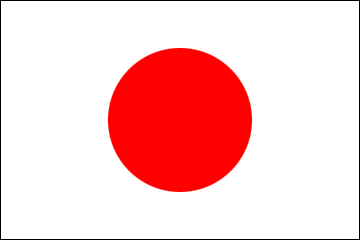The Global Trading System Today is More Important than Ever by Roberto Azevêdo
THE GLOBAL TRADING SYSTEM TODAY IS MORE IMPORTANT THAN EVER
By ROBERTO AZEVEDO
In signing the General Agreement on Tariffs and Trade in September 1955, Japan became party to a system of rules, rights and obligations that transformed the global economy and created an unprecedented degree of commercial harmony between nations. It joined a community of nations which prospered in a trading environment that was stable, predictable and reliable. The creation of this system, as part of the Bretton Woods institutions provided a framework for the greatest run of economic prosperity in history.
But today this system is buffeted by economic and geopolitical turbulence. The ideals and principles that guide the multilateral trading system, while more valuable than ever, are threatened by rising populism, the specter of protectionism and growing anxiety about trade. We have not seen something on this scale since the 1930s.
Japan joined the multilateral trading system because it wanted to enjoy the benefits stemming from common rules and disciplines on trade. And so it did.
In 1955, Japan's merchandise exports were a bit over $2 billion. By 2016, Japanese exports had soared to $644 billion. Today Japan has the world's third largest economy, is the fourth largest exporter of merchandise and is home to the third largest car industry and the largest electronics industry. Tokyo, Osaka and Kyoto are among the world's most vibrant cities and Japanese culture and cuisine are globally celebrated.
Japan's remarkable success is due to many factors including an outstanding system of education and a culture of innovation. But trade has been a cornerstone of Japan's economy and the WTO and the GATT have provided an environment in which Japan's trade could flourish. A stable system of generally low tariffs has enabled Japan's powerful manufacturers to find markets and suppliers around the world. WTO intellectual property rules protect many of Japan's famous brands and cutting edge technologies. WTO services rules allow Japanese banks, insurance companies and logistics companies to expand their global reach.
But for all the benefits trade has brought to Japan not everyone is persuaded. A recent poll from Pew Research Centre shows that while 58% of Japanese citizens believe trade "provides the country with new markets and opportunities for growth," 32% worry that trade "lowers wages and costs jobs."
Those of us who believe in open and free trade ignore at our peril the rising anti-trade sentiment in developed countries, including Japan. We have to acknowledge that many workers today feel threatened by the pace at which the world is changing. New technologies and new actors on the global economic stage have shifted trading patterns and given rise to global production chains.
Despite a higher level of international integration, studies consistently show that, actually, technology, automation and innovation – not trade – are responsible for roughly 80% of lost manufacturing jobs. Indeed, we see job losses even in non-tradeable services sectors like hotels, travel agencies, banking and retail sales. This trend will only accelerate in the future as driverless vehicles and artificial intelligence leave their considerable footprints on tomorrow's economy.
Closing markets will not bring jobs back. In fact it will increase job losses. Each country will have its own formula, but I think it’s clear that the solution lies – among other things – in better education, more targeted skills-specific training and in active labor market policies that facilitate employment and help get the unemployed back to work. Japan has been a leading light in these policy remedies and has much to teach others. Failure to strike the right policy mix raises the risk that populist and protectionist policies become entrenched - and this can lead to dire economic consequences.
The WTO has a role to play in this discussion and in helping to make trade more inclusive.
Our upcoming Ministerial Conference in Buenos Aires (10-13 December) provides us with an opportunity in this regard. Over the last few years, the WTO has delivered a series of major trade deals - the biggest in a generation. This includes the Trade Facilitation Agreement, the abolition of agricultural export subsidies, and the expansion of the Information Technology Agreement. Japan was a leading voice in many of these endeavours. And at the 11th Ministerial Conference in Buenos Aires last December, ministers reaffirmed their resolve to continue such efforts.
We have to keep working to strengthen the trading system and to make it even more vibrant, equitable and inclusive. For more than 60 years, Japan has provided steadfast leadership at the GATT and the WTO. We need that leadership today more than ever. In 2018, what is to be another critical year for the WTO, Ambassador Ihara of Japan will take over the Chairmanship of the WTO General Council (the highest permanent body of the organisation). We look forward to working closely with Japan and the rest of the WTO membership in meeting the current challenges for the multilateral trading system and delivering further successes in the years to come which will support continued growth and development around the world.
-- Robert Azevedo is Director-General of the World Trade Organization.

【Mr. Roberto Azevêdo, Director-General of the WTO】
